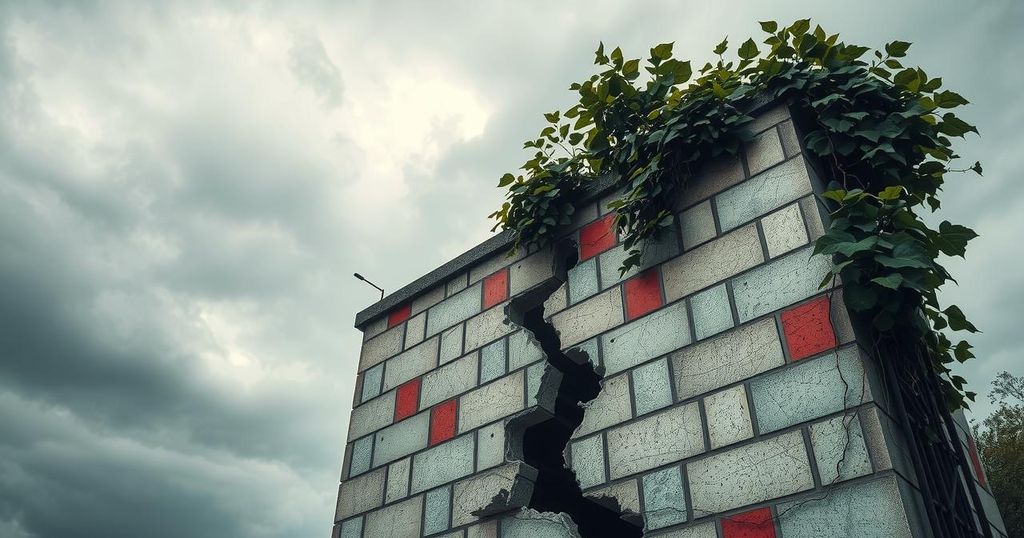Gunfire erupted in Goma, DR Congo, as Rwandan-backed M23 fighters advanced, leading to protests in Kinshasa against international inaction targeting several embassies. The humanitarian crisis has intensified, displacing half a million people this year. International diplomacy is crucial as tensions rise, with numerous casualties reported from ongoing clashes.
Gunfire resounded through Goma, DR Congo, on Tuesday, as military forces clashed with Rwandan-backed militia groups amidst escalating violence. The Tutsi-led M23 faction advanced into Goma, marking significant turmoil in a region long afflicted by conflict since the Rwandan genocide in 1994. The UN refugee agency reported that approximately 500,000 people have been displaced this year due to the fighting.
Demonstrations erupted in the capital, Kinshasa, where protesters expressed outrage against the perceived inaction of the international community by targeting embassies of Rwanda, France, Belgium, and the United States. Kenya’s foreign affairs secretary condemned the violent protests against various embassies, and the U.S. embassy advised its citizens to remain indoors amid the unrest. French officials criticized the assaults on their diplomatic missions, indicating that a fire at the French embassy had been contained.
With tensions escalating, the UN Security Council was slated to convene, while sporadic gunfire was still reported in Goma. Many residents, despite the danger, descended to the lakeside, while others recounted experiences of robbery and violence by local armed groups. Reports indicated that looting had occurred, with numerous civilians witnessing bodies in the streets amidst the chaos.
The situation within the city remains unclear, particularly in determining which factions hold control. Ongoing clashes have resulted in casualties, with at least 17 deceased and many more injured. The United Nations expressed grave concern over food shortages and the potential humanitarian crisis that may unfold. The Red Cross cautioned of dire consequences should pathogens held in Goma’s laboratory escape due to ongoing fighting.
Diplomatic efforts continue as the Congolese government expresses frustration over the UN Security Council’s reluctance to specify Rwanda as instigating conflict. DRC leaders have called for stringent actions against Rwanda, which they accuse of seeking to exploit regional resources. Rwanda, however, retaliates by asserting its military efforts are aimed at confronting an armed group post-genocide, amidst rising regional tensions.
As the calls for diplomacy intensify, upcoming meetings involving Congolese President Felix Tshisekedi and Rwandan President Paul Kagame are scheduled. The ongoing conflict underscores the recurring saga of instability in the DRC, particularly with the resurgence of the M23 group, which briefly took control of Goma in the past before being defeated by Congolese troops and UN forces.
The Democratic Republic of Congo has long struggled with conflict, particularly in its eastern regions, where resource-rich territories have attracted various armed groups backed by foreign nations. The resurgence of the M23 militia, initially formed during the Rwandan conflict, exacerbates local tensions and humanitarian concerns. International entities, including the United Nations, are deeply involved in seeking resolutions but often encounter issues in addressing the complexities of external involvement and local governance challenges.
The violence in Goma and protests in Kinshasa highlight a critical juncture in DR Congo’s ongoing strife, marked by foreign intervention and local insurgency. Humanitarian concerns grow as conflict displaces hundreds of thousands, causing food shortages and unrest. Continued dialogue and international pressure may be essential for stabilizing the situation and addressing the underlying causes of the conflict.
Original Source: www.wfxg.com






